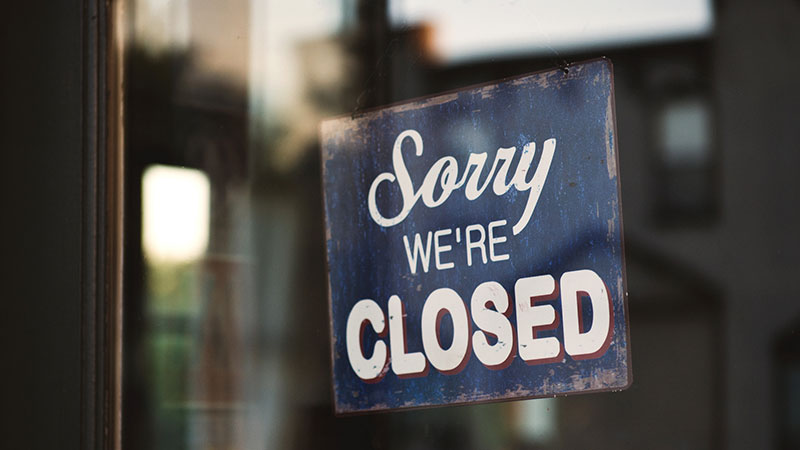
What Happens to Your PPP Loan If Your Business Closes?
Though COVID-19 has hammered the U.S. economy on a whole, small businesses have been exceptionally vulnerable to its wrath. More than 100,000 small businesses have already closed their doors, and nearly a quarter say they’re considering ceasing to operate permanently, according to a recent survey by Small Business for America’s Future.
If you’re thinking of closing up shop because of the ongoing pandemic and recession, you’ll clearly have a lot of financial loose ends to tie up. But what if you received a PPP loan earlier on in the year? Will you still be liable to pay it back?
How much liability do you have?
Many small businesses have received aid to survive the COVID-19 crisis, and that includes PPP loans. The good news is that if your PPP loan was relatively small, you may not have an issue if you decide to close your doors. PPP loans of up to $25,000 did not require collateral or personal guarantees from businesses or business owners, so if you default on a PPP loan that falls within that threshold, you generally won’t risk having your personal or business assets seized.
Still, defaulting on a loan is hardly a non-event. If you go that route, it may serve as a black mark on your credit history, making it harder for you to borrow again — or borrow affordably — should the need arise.
Imagine you decide to close your current business, wait out the COVID-19 crisis, and then try again with a new venture in a year or two. With a default on your credit record, you may be denied funding to get that new business off the ground. And, depending on how badly your credit is hurt, you may even struggle to get approved to sign a commercial lease for your business to operate in.
Meanwhile, if your PPP loan was more than $25,000, you may have a problem on your hands if you default on it. At that point, there’s the risk of having your personal or business assets seized.
Bankruptcy may be a better option
If you’re aiming to close your business and can’t repay your PPP loan, you might consider filing for bankruptcy. Generally, loans of this nature can be discharged during the bankruptcy process. But again, a bankruptcy can serve as a black mark on your credit record, and it can also be a long, drawn-out, expensive endeavor.
What if your PPP loan is eligible for forgiveness?
Unlike most loans, PPP loans don’t necessarily need to be paid back. PPP loans are forgivable for businesses that abide by specific requirements — namely, using at least 60% of their loan proceeds to cover payroll costs. If you comply with these rules but wind up having to close your business after the fact, your outstanding PPP loan may be a non-issue — because you may not have to repay it anyway.
Source: Mooresville Tribune

